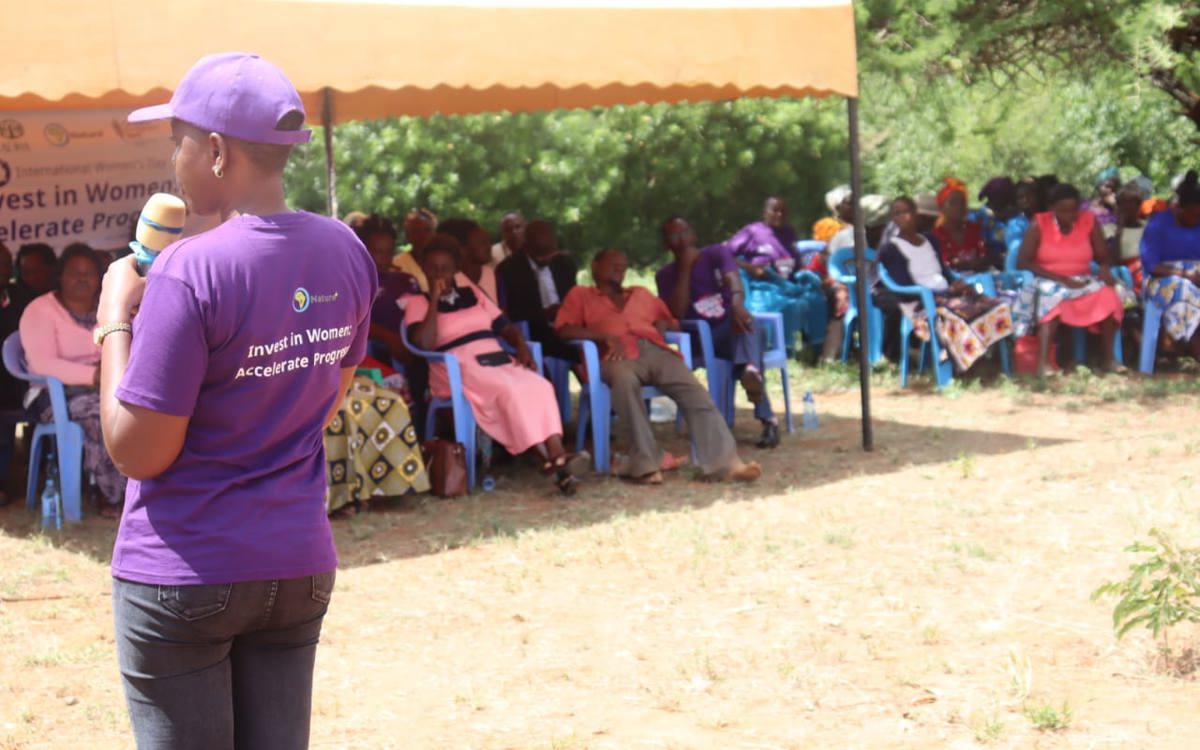
Kenya is making strides towards gender empowerment. However, it still has a long way to go. In 2020, only 29% of Kenyan women were considered by the United Nations (UN) to be ‘empowered’.
The UN highlights that progress has been hampered by the inadequate implementation of laws, limited funding, and weak accountability mechanisms. Perhaps the biggest obstacle is the slow transformation of patriarchal gender norms within cultures and communities, with attitudes and practices that harm women being particularly resistant to change. Advancements are needed across a variety of areas within society, and there is a pressing need for policy and legal reforms.
Hellen finished her undergraduate degree in 2014. Whilst she had been studying a Bachelor of Commerce in Human Resource Management, she had always had a keen interest in gender and the intersection between gender and development. However, her undergraduate degree had not taken her in this direction, and she lacked specific knowledge and training in this field. She therefore decided that the time was right to seek out opportunities for further study, reasoning that a specialised Master’s degree would be a good next step towards a career in gender and development. She was delighted to be awarded a Queen Elizabeth Commonwealth Scholarship (QECS), which took her to Cameroon to study for a Master’s degree in Women and Gender Studies.
‘My QECS scholarship equipped me with skills in programme management specifically in gender and development which has enabled me to work with various international organisations on various projects.’
From human resource to gender studies, and from Kenya to Cameroon
The journey to Cameroon opened Hellen’s eyes to a whole new world. Cameroon is a melting pot of people and cultures, and she has fond memories of the people she met whilst studying. In particular, she was struck by the linguistic variety of Cameroon, which made it the perfect place to meet people from countries across Africa.
‘I was able to meet very many different students from different countries. Countries that speak French, like Cote d’Ivoire, and countries that speak English, like Kenya, Uganda, and Tanzania, and also countries that speak Swahili. You will find translators and interpreters coming all the way from East African countries and all other countries coming to Cameroon to learn, because it’s a centre of language.’
Living and studying in Cameroon gave Hellen a new sense of confidence, and a belief that she could navigate new cultures and experiences.
‘When you have not travelled out of the country, you may think it is a very difficult thing to leave Kenya and go to another country. But once I left Kenya to go and study for my Master’s, it was like an eye-opener to travel to other countries whenever an opportunity presents itself’
Developing the Wajir County gender bill to fight against gender-based violence in the community
In 2017, Hellen graduated from her Master’s, and returned to Kenya to begin her search for work in her chosen field. She was successful, and in 2018 she began working as a Gender and Environment Officer. She credits her Queen Elizabeth Commonwealth Scholarship as directly contributing to her selection for this role.
‘To me, this opportunity came as a result of my Master’s studies. Because this was actually one of the key requirements for this role. I can say I got this job courtesy of my Master’s degree in Women and Gender Studies. And that was the beginning of my career as a gender specialist.’
This role took her to Northern Kenya, home to a large Somali refugee population. Between 2018 and December 2019 Hellen worked within this community, promoting women’s empowerment and gender equality. Over the course of her work, she saw that gender-based violence (GBV) was a particularly prevalent issue affecting women in this community. Addressing this problem was complex; GBV was not a widely recognised problem within the culture of the community. When the issue was raised, traditional approaches to finding a resolution were preferred, as opposed to formalised justice mechanisms. Hellen observed these issues, and she was determined to find a way to support women facing this struggle.
‘I have built the capacity of over 100 protection actors in the Northern part of Kenya where we together worked to challenge harmful cultural practices that contribute to violence against women and girls, strengthened the government GBV referral pathways and created awareness on GBV reaching over 500 households and over 5,000 people.’
In response to what she had seen, Hellen joined a team working on the development of the Wajir Gender Bill. The team was developing a county-level policy document which aimed to raise the profile of GBV as an issue and work to establish mechanisms for justice and prevention. Hellen acted as a key stakeholder; she was at the forefront of the discussions, raising the voices of women within the community. Her work was successful, and in 2019 the Wajir Gender Bill was passed.
‘One of the key things in the bill was strengthening of the referral pathway of gender-based violence. Especially the equipment of a recovery centre for gender/domestic violence, which was then just a proposal. And, later, after the policy was passed, the recovery centre for the victims of gender-based violence was fully constructed and launched. It is one of the strong wins that we really advocated for.’
